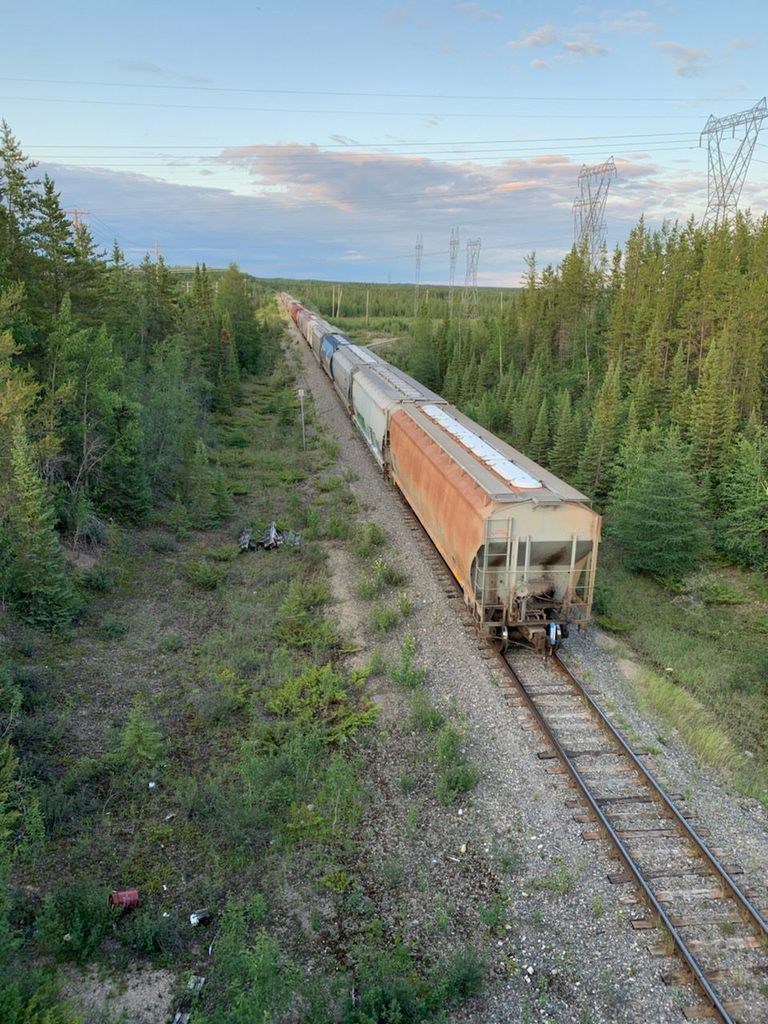Thompson residents who rely on or use the Hudson Bay Railway for business or pleasure can voice their opinions on the service, its future and the viability of a Northern Manitoba trade corridor at a Jan. 24 event.
Entitled “On the right track” and organized by Manitoba Keewatinowi Okimakanak at the behest of Transport Canada, the event runs Tuesday from 10 a.m. to 4 p.m. at the Ma-Mow-We-Tak Friendship Centre.
MKO was approached by Transport Canada to host this community engagement session and others in other communities along the Bayline, says Damien Lynxleg, a policy analyst with MKO. A previous session was held in Thompson in late November but wasn’t well attended, possibly due to people being busy with preparations for the Christmas season.
Transport Canada contracted MKO to facilitate the engagement sessions because of its existing relationship with and understanding of the communities along the HBR and with regional and national Indigenous organizations.
“Their perspectives are vital to the validity of the study and will be recorded and summarized in a final report prepared by the Manitoba Keewatinowi Okimakanak,” said a Transport Canada spokesperson.
The information and better understanding of communities’ and individuals’ use of and experiences with the railways that Transport Canada hopes to obtain via these sessions is intended to provide “an evidence-based foundation to support longer term planning of the existing Hudson Bay Railway corridor, including its potential as a trade corridor and its role in providing regional connectivity,” said the spokesperson.
The purpose of the session is to gather information from people in Thompson who use the railway and to analyze their comments and answers to survey questions in order to draw conclusions that will then be forwarded to Transport Canada.
“There’s not going to be a major decision process based solely on these opinions,” Lynxleg said. “What they’re going to do is they’re going to see what they can do to change things so that relationship [between railway users and train operators] is better.”
Transport Canada’s spokesperson said the federal agency is currently at the information-gathering stage so there is no timeline for when viewpoints gleaned via the community engagement sessions will lead to any action.
“The study will provide third-party independent analysis to develop options for essential transportation services in the Northern Manitoba region, as well as assess the potential viability of a trade corridor through the Port of Churchill, Transport Canada’s spokesperson explained. “The objective of the study is to examine long-term possibilities for the future of this northern corridor and will not recommend any specific solution.”
MKO’s conclusions will also be available to communities along the HBR and their residents as well.
“We share with communities’ leaders and the communities themselves,” Lynxleg says.
Participation is open to anyone who makes use of the railway.
“A lot of businesses rely on their goods being delivered by train,” Lynxleg says. “People have family members or maybe they have contacts or friends who are in another part of the region that they may not be able to go see on a regular basis, right? They need to travel to and from just to see these people.”
The opinions and experiences of Northern Manitoba residents can also provide insight into how things are changing.
“Climate change is also a factor in the railway and how the land is just changing before our very eyes and it affects the operation of the railway because it can cause upheavals or unforeseen weather patterns,” Lynxleg says.
Impacts of service discussions can also be discussed.
“The perfect example is the [Jan. 5] derailment [at the Thompson Junction Line],” says Lynxleg. “That was due to poor operation and maintenance and the amount of time it took for them to fix it, the length of time just wreaks havoc on everybody’s lives.”
Attendees will receive food and other refreshments and have the opportunity to win door prizes, according to the event poster.




